Gay Men in Therapy: Healing Trauma and Embracing Identity

Recent Posts
Understanding Trauma in the Lives of Gay Men
The Role of Therapy in Healing Trauma for Gay Men
The Importance of LGBTQIA+ Affirmative Therapy
Conclusion: Embracing Healing and Empowerment
Therapy is a powerful tool for healing, but for gay men, it can be an essential lifeline to understand and address trauma deeply rooted in societal, familial, and internalized struggles. Gay men often carry the weight of trauma that stems from a lifetime of navigating a world that frequently denies or diminishes their identity. This blog post explores the unique relationship between trauma and therapy for gay men, emphasizing how therapy can be a path to healing, self-acceptance, and reclaiming personal power.
Trauma is an emotional response to a deeply distressing or disturbing experience. For many gay men, trauma doesn’t always originate from a singular, catastrophic event but often accumulates over a lifetime of experiences that range from overt discrimination to more subtle, insidious forms of harm. The trauma gay men face can emerge from multiple contexts:
Therapy offers a safe space for gay men to explore their trauma and begin the process of healing. A therapist who understands the unique experiences of gay men can help untangle the layers of shame, fear, and hurt that have accumulated over time. Here’s how therapy can be especially beneficial:
1. Family and Early Childhood Trauma
1. Creating a Safe, Affirming Space
2. Societal and Cultural Trauma
2. Processing Trauma
3. Trauma in Romantic and Sexual Relationships
3. Building Healthy Relationships
- Growing up in a society where heterosexuality is the norm can make childhood a challenging period for many gay men. From an early age, children pick up on societal messages about gender and sexuality. Gay boys may feel “different” without fully understanding why, often internalizing negative messages before they even realize they are gay. These early experiences can lead to:
- Rejection or fear of rejection from family members: Even in loving families, many gay men fear coming out due to the possibility of rejection. Some may experience outright rejection, disownment, or a loss of emotional support, leading to long-lasting wounds.
- Suppression of identity: To avoid conflict or maintain family approval, many young gay men learn to hide or suppress their true selves, which can cause significant psychological distress, confusion, and a fractured sense of identity.
- Bullying and isolation: Many gay boys face bullying in school, sometimes escalating to physical violence. Whether verbal, emotional, or physical, bullying can create trauma that reverberates for years.
- Trust and intimacy issues: Gay men who have experienced rejection or abuse may find it difficult to trust others, leading to emotional distance or fear of commitment.
- Body image and self-esteem: Societal expectations around masculinity and body image can weigh heavily on gay men, exacerbating issues of self-worth and contributing to disordered eating, substance use, or compulsive behaviors.
- HIV/AIDS-related trauma: For older gay men, the legacy of the HIV/ AIDS crisis is a profound source of collective trauma. Many gay men lost partners, friends, and entire communities to the disease, leaving behind a sense of grief, survivor's guilt, and ongoing anxiety about their health.
- Homophobia and Discrimination: Gay men are often subject to societal prejudice, ranging from everyday microaggressions to systemic oppression. Living in environments where being gay is stigmatized, criminalized, or pathologized can create constant stress, resulting in feelings of shame, fear, and alienation.
- Religious Trauma: Many gay men grow up in religious or cultural settings where their sexual orientation is viewed as sinful or unnatural. The internal conflict between one’s sexual identity and religious teachings can lead to deep feelings of guilt, self-hatred, and existential crisis. Gay men from highly religious backgrounds often experience profound spiritual trauma, which can take years to unravel in therapy.
- Internalized Homophobia: One of the most damaging consequences of living in a homophobic society is internalized homophobia. Gay men may unconsciously adopt negative beliefs about themselves based on society’s negative portrayal of their identity. This internalized hatred can fuel self-sabotage, low self-esteem, and destructive behaviors.
- One of the most important aspects of therapy is the creation of a safe, nonjudgmental space where gay men can freely express themselves without fear of rejection. Many gay men spend years guarding their true selves or censoring their emotions. In therapy, they can finally let their guard down and confront the issues they’ve been avoiding.
- Affirming therapy is key. A therapist who is knowledgeable about LGBTQIA+ issues can validate the client’s experiences and guide them through the nuances of their identity and trauma with empathy and understanding.
- Unpacking Early Experiences: Many gay men have childhood traumas that they’ve never fully processed. Therapy provides the opportunity to revisit those early experiences of fear, rejection, or confusion and understand how they have impacted the person’s adult life. Techniques like Cognitive Behavioral Therapy (CBT), Eye Movement Desensitization and Reprocessing (EMDR), and trauma- informed therapy can be particularly effective in helping gay men process these experiences.
- Dealing with Shame: Shame is often a central theme in the lives of gay men who have experienced trauma. Therapy helps to break down this shame and replace it with a sense of pride and self-compassion. By confronting the internalized negative beliefs, clients can begin to build a healthier relationship with themselves.
- Managing Anxiety and Depression: Trauma often manifests as anxiety and depression, which are common among gay men who have faced discrimination or rejection. Therapy can equip clients with tools to manage these symptoms, helping them regain a sense of control and stability in their lives.
- Developing Trust: Therapy can help gay men work through trust issues that stem from past trauma. Whether it’s trust in romantic relationships or friendships, therapy offers tools for building healthy connections and overcoming fear of vulnerability.
- Exploring Intimacy: Many gay men struggle with intimacy due to past emotional wounds or societal stigma around same-sex relationships. Therapy can guide clients through exploring their fears, desires, and boundaries, enabling them to form deeper, more fulfilling relationships.
- Addressing Body Image and Self-Worth: Therapists can also help gay men tackle issues related to body image and self-esteem, particularly if these are tied to trauma from societal pressures or early childhood experiences. By focusing on self-acceptance, therapy can lead to a healthier relationship with one’s body and identity.
- Gay men often face unique challenges in forming healthy relationships due to the trauma they’ve internalized. Many struggle with:
For therapy to be truly effective for gay men, it’s critical that therapists understand the unique challenges and nuances of their clients’ experiences. LGBTQIA+ affirmative therapy ensures that therapists are not only accepting but actively knowledgeable about the specific needs of gay men. This approach fosters an environment where clients feel truly seen and heard, which is especially important for those who have spent their lives feeling marginalized or misunderstood.
LGBTQIA+ affirmative therapists recognize the layers of trauma that come with being a gay man in a heteronormative world. They also understand that healing involves more than just coping strategies—it’s about helping clients build a sense of pride in their identity, reclaiming their narrative, and fostering resilience in the face of adversity.
For gay men, therapy is more than just a means of coping with trauma—it’s a path toward self- empowerment and healing. By addressing the roots of trauma, challenging internalized shame, and cultivating self-compassion, therapy helps gay men reclaim their identities and lead more fulfilling, authentic lives.






